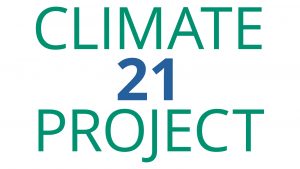In this week’s roundup, we consider distressed property bonds and loans, cities that are sinking under their own skyscrapers, efforts to lower carbon emissions, the unexpected potential of dirty diapers as a building material, and so much more.
Articles Posted in Climate Change
Real Estate & Construction News Roundup (04/26/23) – The Energy Transition and a Bit of Brick-and-Mortar Blues
In today’s roundup, Americans can buy homes with bitcoin, new tech aims to engineer a novel building material, federal investments boost the coastline (and construction sales), and more.
Real Estate & Construction News Round-Up (09/07/22) – Futuristic Cities, Shifting Housing Demand, and Rent Control
This week’s round-up addresses the shift in housing demand, efforts of apartment complexes to become more eco-friendly, plans for “cities of the future,” and more.
Real Estate & Construction News Round-Up 04/13/22
Phishing schemes target the mortgage industry, housing prices rise in Europe as Ukrainian refugees flee from their home country, the SEC announces new climate change regulations that will impact commercial real estate, and more.
Real Estate & Construction News Round-Up 03/02/22
Economic sanctions placed on Russia cause a shift in the U.S. real estate market, investments in virtual real estate continue to grow as market equilibrium returns, climate change concerns have made a notable impact on regional real estate interest, and more.
Real Estate & Construction News Round-Up 02/09/22
A Florida home for sale offers a property deed via an NFT, nuclear power is projected to play an important role in the climate crisis, a Spanish real estate developer aims to set up an office in the the metaverse Decentraland, and more.
Real Estate & Construction News Round-Up (11/10/21)
The House of Representatives passes the Senate version of the Infrastructure Investment and Jobs Act (IIJA), the construction industry continues to struggle with labor shortages, effects of climate change put the built environment at risk, and more.
Environmental Justice: A Legislative and Regulatory Update
Environmental Justice, as an urgent policy priority of the Federal Government, dates back to 1994, and President Clinton’s issuance of Executive Order 12898. This order directed federal agencies to identify and address, as appropriate, “the disproportionately high and adverse human health and environment effects of its many programs, policies, and procedures on minority populations and low-income populations.” Executive Order 12898 supplements Executive Order 12550 (1980), whose primary legal basis was Title VI of the Civil Rights Act of 1964, in particular, Sections 601 and 602, which prohibit discrimination in programs and activities receiving federal financial aid and assistance.
Over the years, the Supreme Court has reviewed the scope and importance of Title VI. For example, in Alexander v. Sandoval, decided in 2001, the Court concluded that while private parties could sue to enforce Section 601 or its implementing regulations, Section 601 only prohibits intentional discrimination; which is very difficult to prove. In addition, the Court ruled in Sandoval, that private parties cannot sue to enforce regulations implementing Section 602. Perhaps as an acknowledgement of these shortcomings, the Environmental Protection Agency (EPA) has for many years operated an administrative system to process environmental justice complaints (see 40 CFR Part 7). The process is complex and the results—usually whether a state agency has failed to uphold Title VI—have generally been unsatisfactory. To be successful, many proponents of environmental justice believe that a statutory foundation must be established, and significant efforts have been made to do so.
Presidential Executive Order 14008: The Climate Crisis Order
The “Climate 21 Project” Prepared for the New Administration
 This is a brief review of the recently released “Climate 21 Project” policy memo. It is the work of many former members of the Obama Administration who are deeply concerned about climate change and what steps the new administration can take in the first 100 days to confront a problem. Offering “actionable advice” rather than a policy agenda, the group recognizes that Congress must do its part by providing new statutory authorities within the early days of the new administration, and the President must be prepared to aggressively exercise the powers of his office. As the members of the Group see it, there are four interlocking crises facing the President: (a) the COVID-19 pandemic; (b) the economic devastation visited upon many people by the pandemic; (c) racial injustice; and (d) accelerating threats posed by climate change.
This is a brief review of the recently released “Climate 21 Project” policy memo. It is the work of many former members of the Obama Administration who are deeply concerned about climate change and what steps the new administration can take in the first 100 days to confront a problem. Offering “actionable advice” rather than a policy agenda, the group recognizes that Congress must do its part by providing new statutory authorities within the early days of the new administration, and the President must be prepared to aggressively exercise the powers of his office. As the members of the Group see it, there are four interlocking crises facing the President: (a) the COVID-19 pandemic; (b) the economic devastation visited upon many people by the pandemic; (c) racial injustice; and (d) accelerating threats posed by climate change.
 Gravel2Gavel Construction & Real Estate Law Blog
Gravel2Gavel Construction & Real Estate Law Blog



